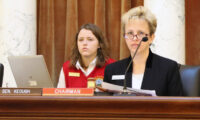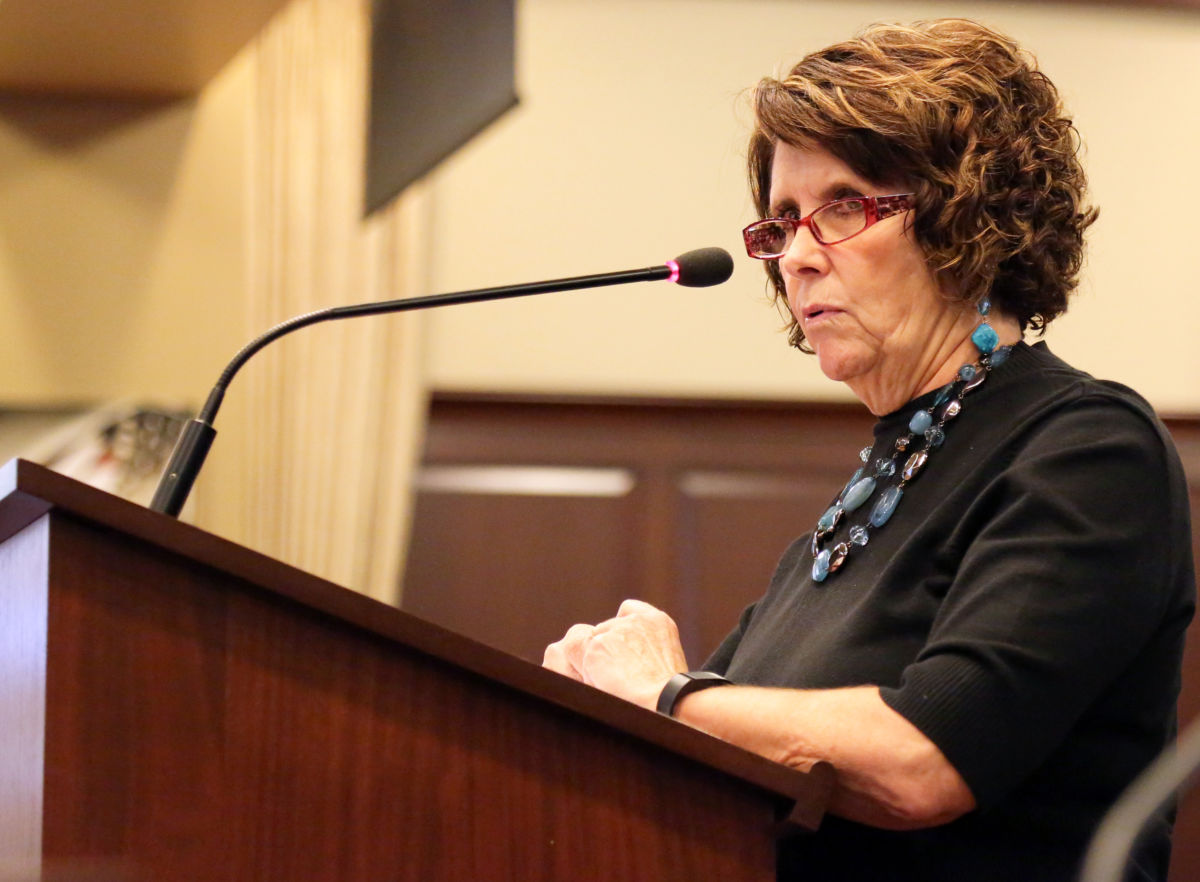State superintendent Sherri Ybarra says her 2018-19 budget request stays the course for Idaho schools — and enjoys buy-in from education leaders and fellow elected officials.
“I feel like this budget is very reflective of everybody’s feedback,” Ybarra told Idaho Education News in a Wednesday afternoon interview.
Initial reactions to the budget are mixed. One powerful legislative budget-writer said Ybarra’s request is sound; another is withholding judgment. One key education stakeholder commended Ybarra for making “a good healthy ask” on behalf of the state’s students. A second stakeholder says Ybarra’s request comes up short, while a third says it’s too early to tell.
Key line items
At nearly $1.8 billion, the Ybarra budget request represents a $113.6 increase for public schools. While this all adds up to a 6.8 percent increase, the added money would cover rising student enrollment and pay for some ongoing efforts.
Here are a few highlights, and Ybarra’s thinking behind the requests.
- For year four of the career ladder — Idaho’s five-year plan to boost teacher salaries by $250 million — Ybarra is seeking an additional $46.6 million. Minimum salaries would increase from $34,600 to $35,800. It will be “several years” before the state has statistical evidence showing whether the pay increases are helping Idaho recruit and retain teachers, Ybarra said. But there is anecdotal evidence that the pay raises are helping teacher morale.
- Schools would receive an additional $19 million in “operational” funding, which they can use to cover salaries, supplies or any other needs. But $7.2 million would be earmarked to cover the rising cost of health insurance premiums. “I think it’s a step in the right direction,” Ybarra said.
- The budget also takes an incremental step at addressing the rising costs of classified staff — which can include specialized jobs such as IT support. This $7.2 million is also a starting point, designed to offset some costs that districts are wrestling at the local level.
- Ybarra wants to add $8 million to the state’s rapidly growing advanced opportunities program — which pays high school students to take college-level courses. The program saves families thousands of dollars in college costs, Ybarra says, and introduces high school students to the rigors of college coursework.
- Ybarra wants to spend an additional $2 million on college and career counselors, giving districts the option to bolster their junior or high school counseling staffs.
- Schools would receive $8.6 million in technology money, and they would have the option of spending it on classroom devices or other technology needs.
Mixed reactions
Ybarra submitted the State Department of Education budget request Friday, the deadline for agencies to submit their spending plans to the governor’s office.
Now, lawmakers and education leaders are diving into the details.

Sen. Shawn Keough, R-Sandpoint, the retiring co-chair of the Legislature’s Joint Finance-Appropriations Committee, said the Ybarra budget is sound. The plan builds on the state’s commitment to boost teacher pay and cover the rising costs of high school advanced opportunities programs — and recognizes the fact that more and more school districts have been forced to ask property owners to cover day-to-day needs.
Rep. Wendy Horman, an Idaho Falls Republican and JFAC member, says she needs more time to study Ybarra’s request line by line. Ultimately, Horman figures to play a key role in the budget process; in recent years, she has been the lead writer on K-12 spending bills that received overwhelming support from the Legislature and Gov. Butch Otter.
While Ybarra claims widespread support for her budget, the initial response from education lobbyists casts that into some doubt.
Idaho Association of School Administrators executive director Rob Winslow liked several of Ybarra’s proposals — especially the boost in operational funding and the money for classified salaries.
“It’s a good healthy ask,” he said Tuesday. “It felt to me that she heard what we said.”

Idaho School Boards Association executive director Karen Echeverria withheld judgment on the budget. “The SDE did not share it with us ahead of time so we just saw it last week as well,” Echeverria said Tuesday. Ybarra’s staff pointed out that the SDE held a meeting on the budget request on July 26, and ISBA staffers attended.
When the budget went public Friday, Idaho Education Association president Kari Overall praised Ybarra for funding another year of the career ladder, but said a stay-the-course approach will not go far enough to help Idaho recruit and retain its best teachers. In Wednesday’s interview, Ybarra defended the decision to stay the course. “Everybody knows there has to be a starting point and a stopping point.”
The political process
The Ybarra request begins the long process of setting a budget for Idaho’s public schools — for a spending year that begins on July 1, nearly 10 months from now.
Otter gets the next move, beginning his final year as governor by presenting his final executive budget request to the Legislature in early January. Later that January, Ybarra will present her budget request to JFAC.
It will then be up to JFAC to compare the two requests, and draw up a spending plan for legislative approval — and Otter’s signature.
To further complicate this intricate process, 2018 is an election year. Ybarra plans to seek re-election. All 105 legislative seats will be on the ballot. While Otter does not plan to seek re-election, an open and heated gubernatorial race will provide the backdrop for the 2018 session.
Between now and the start of the session, Ybarra says she will try to get the word out, making presentations to groups to explain her budget plan.
